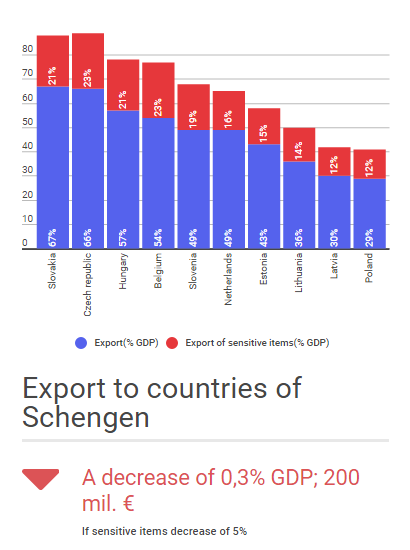The results of the recent elections surprised probably all Slovaks. Quite a number of parties made it to the Parliament and everyone is waiting what a mash-up they will create. Presumably the biggest surprise was the success of an extreme right-wing party Kotleba – People’s Party Our Slovakia (ĽSNS).
There is no use in crying over the spilled milk, or blaming someone for its success. On the contrary, it is necessary to look at it from an objective point of view – how the party managed to (un)impress the voters. Let us look at the program of the party that left everyone surprised by its success. We will therefore focus on the economical elements of the party agenda.
The first of the points featured in the Kotleba’s program is the recovery of the Slovak self-sufficiency. The program states that 38% of groceries are imported, and the party deems this undesirable. For this reason, it considers renewing the agriculture and self-sufficiency leading to lowering the unemployment by 25%. In a similar manner, it intends to take the gas, land and electricity away from the hands of the foreigners. It probably would be useless to try to figure out how the party came up with these numbers, but let us have a look at the factuality of the statements. Even the easy economic theory of comparative advantage can explain this nonsense. The theory simply describes how it is preferable for the country to deal with a foreign country, having lower expenses to process particular raw materials, rather than doing it itself. Simply said, if it is cheaper to grow grapes in France, but it is easier to produce dairy products in our country, it is more efficient for both of the countries to do business together.
 Slovakia would definitely suffer economically if it decided to put this measure into action. This means that usiness between two partners is to be put to a halt due to political expediency. Therefore, if there was no demand from the consumers, the mentioned 38% of groceries would have never been sold in Slovakia.
Slovakia would definitely suffer economically if it decided to put this measure into action. This means that usiness between two partners is to be put to a halt due to political expediency. Therefore, if there was no demand from the consumers, the mentioned 38% of groceries would have never been sold in Slovakia.
The first point is closely connected to the second one featured in the Kotleba’s program. It deals with re-establishing border controls, leaving the European Union and re-implementing the Slovak Crown as a currency. All these ideas are connected to a situation where Slovakia would no longer be a member of the Schengen area. This would again ensure the economical crash of Slovakia. Based on the program, it is difficult to understand, whether this would be a complete cut off of Slovakia from the world, or is it limited only to the border controls. Either way, the business would slow down to its minimum and in the worst-case scenario it would completely stop, as we had left the EU “just like that”. 67% of the Slovak export goes to the countries of Schengen, 21% of which are sensitive items (groceries and consumer goods). According to the analysis by the UniCredit bank, lowering the export of sensitive items just by 5% would cause the GDP drop by 0.3%, which would amount approximately to EUR 200 million. Needless to say, we are now considering only the minimal losses, not even taking into consideration the application of the abovementioned self-sufficiency idea.
The third point of the program is a solution to social issues. Within the scope of this point, the party promises jobs for everyone, includes lowering the retirement age to 60 years of age, or an increase of maternity benefits to 100% of the salary. These are the topics that the party did not describe in any more detail and basically they cannot even be explained and backed up by any numbers. The question stands how the party would obtain the money to solve these issues. Let’s not forget their declaration about presenting the balanced budget and lowering the debt, as they proclaim in the other points of the program. Naturally, jobs for everyone cannot be granted in a free and market system. One of the reasons is that it is infeasible for the state to supply. And even if it were manageable, the people would have to be physically forced to work. Also lowering the age of retirement to 60 years of age would be an economic suicide for the country, as the pensions need to be paid by someone.
The program of the Kotleba’s party lacks depth and can be labeled as populism that could be controverted by a high school student on the basis of his/her Social Studies handbook. By the execution of the program, the country would harm itself economically, not to mention harming the free market and legal principles. This would only be the highway to serfdom from which it is very difficult to return.
Translated by Eva Majorská



